April 2017
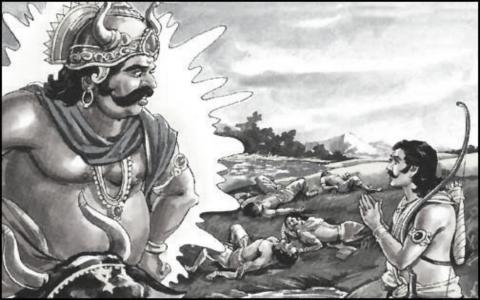
This is the third part of the translation of the Yakshaprashna. With this, all the verses in the critical edition have been translated. In the fourth and concluding part of the translation we will take up all the verses from the Chitrashala edition that have not already been covered in the critical edition.
Chapter 297
Verses 63-74:Yudhishtira
दिवं स्पृशति भूमिं च
शब्दः पुण्यस्य कर्मणः ।
यावत्स शब्दो भवति
तावत्पुरुष उच्यते ॥ ६३
The words of one’...
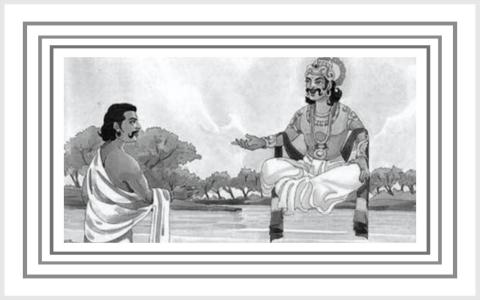
This is the second part of the translation of the Yakshaprashna, a conversation between Yudhishtira and Yama on the banks of the enchanted lake.
Chapter 297
Verses 32-62:Yaksha
किं क्षत्रियाणां देवत्वं
कश्च धर्मः सतामिव ।
कश्चैषां मानुषो भावः
किमेषामसतामिव ॥ ३२
How does a kshatriya attain divinity?
What is his true dharma?
What is the human trait of kshatriyas?
What is the wrong path for a kshatriya?
Yudhishtira
इष्वस्त्रमेषां देवत्वं
यज्ञ एषां...
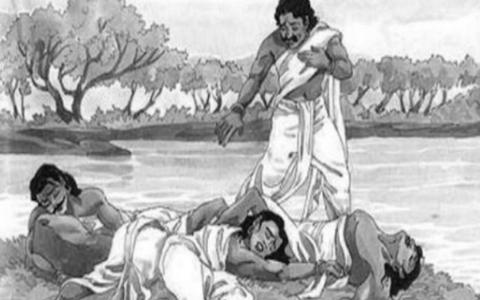
One of the most fascinating tales in the Mahabharata is the dialogue between Yudhishtira and Yama on the banks of the enchanted pool. This episode is popularly known as the ‘Yakshaprashna.’ The characters of the Mahabharata, so richly sketched by Vyasa, find relevance even today among readers. Never one to judge his characters or paint them with a single shade of color, Vyasa highlights the ridiculous and the sublime in the characters at various...

माणिक्यक्रमणं लोके मङ्गलाय भवेत्किल |
मङ्गले सहजेsस्माकं माणिक्यात्किं प्रयोजनम् ||
Maṅgaleśvara-śāstri had an elder brother by name Rukmeśvara-śāstri. He was talented and had great erudition. The brothers went to Viṣākhapaṭṭaṇam for some work and had to stay there for a while. They had to cook their own food and take care of their daily needs by themselves. One day, when Rukmeśvara-śāstri was about to step out to buy vegetables for the day’s...
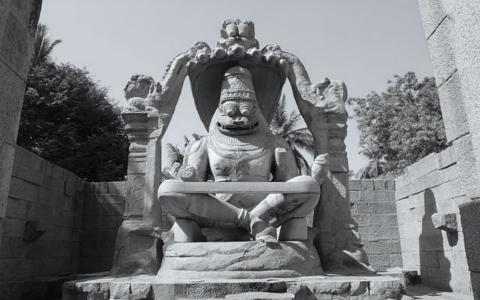
पूषवाडान्वयाब्धीन्दो स्वस्ति नारायणप्रभो |
नेत्रे गात्रे तथा श्रोत्रे वक्त्रे पुष्पेषुशोभ ते ||
Once, a scholar visited the court of Nārāyaṇa Gaṇapati, the provincial ruler of Andhra’s Vijayanagar empire. He gave a discourse on dvaita vedānta and maintained that the Vedas stand proof for the authenticity of the dvaita principle. He even quoted several phrases from the Vedas to substantiate his stand. Finally he even declared “भिधा सत्यं भिधा...

यागक्रियार्थं खलु वृक्षराजो
वर्णक्रियार्थं खलु भृङ्गराजः |
तुलाक्रियार्थं खलु विट्तराजो
न किञ्चिदर्थं भुवि नर्सराजः ||
Naḍimiṇṭi Maṅgaleśvaraśāstri was a scholar, who was born in a town called Nāgūru of the Pārvatīpura province in the Viśākhapaṭṭaṇam district of the erstwhile Andhra Pradesh. He lived in the 19th century and was an authority on language and grammar. In his wit, he was like the famous Rāmakṛṣṇa of Tenāli.
His mastery over grammar...

त्वमसि रसिकमध्ये मङ्गलस्वानरम्यः
समरमृदितशत्रुः किं च रम्भारतीच्छुः |
दरधरहृदयोsहं नेश्वरश्रीर्जितोsन्यैः
मम वितर समृद्ध्यै मन्दिरं का क्षतिस्ते ||
Garaḻapuriśāstri’s greatness as a poet and his modesty competed with each other. He took up residence in Mysore under the care of Liṅgaraje-aras, the king’s son-in-law. He took up the responsibility of editing the poems written by Liṅgaraje-aras. His family grew with time and he was soon in need of...
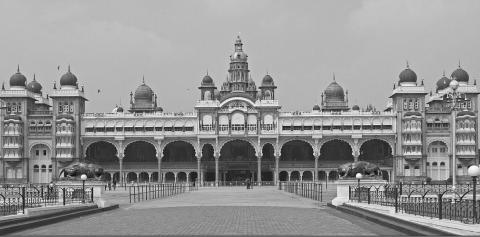
नृसिंहाख्ये गण्डशैले वरदाख्यो महामणिः |
निपत्य खलु तत्तैव व्यशीर्यत सहस्रधा ||
A grammarian by name Narasiṃhaśāstri once presented a verse in the form of a eulogy to the King Mummaḍi Kṛṣṇarāja Wodeyar of Mysore. The verse was set to a rare chandas (meter), that was not commonly used. Upon hearing the verse, a poet by name Varadācārya who was in the king’s court raised an objection that the verse was faulty as it was set to an unknown meter....
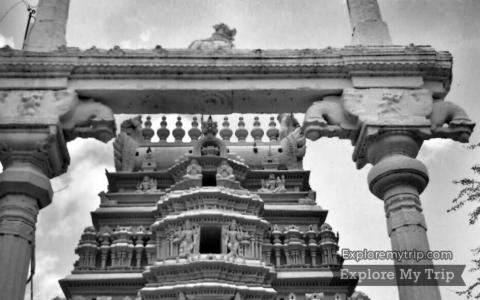
अनाघ्रातव्यङ्ग्यैरपरिचितशब्दार्थरचनै
रबुद्धालङ्कारैरनवगतभावोज्ज्वलरसैः |
यशोमात्रं कूजन्नवनवदुराशैः कुकविभि
र्दुरध्वे व्याकृष्टा भगवति विपन्नासि कविते ||
Sosale Garaḻapuriśāstri was a scholar in the court of the king Mummaḍi Śrī Kṛṣṇarāja Wodeyar and an erudite poet. Basavappaśāstri, who was known as ‘abhinava-kāḻidāsa’, was his student. He was an extempore poet (āśukavi) and was known for his poetic marvel. He lived in a village called Sosale...
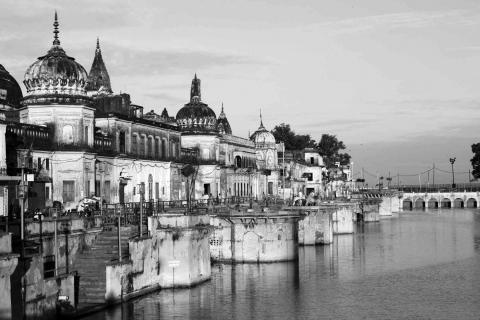
In sanatana dharma, birthdays of great people are celebrated as jayantis and death anniversaries are remembered as aradhanas. Sri Rama Navami is the birthday of Rama, the unparalleled hero known as the embodiment of dharma, dignity, honor, compassion, and capability. It is often believed that Rama was the avatara of the great deity Vishnu. The name 'राम' has come from the root ‘रम् क्रीडायाम्’ meaning 'play' or 'enjoyment.' The semantic...
